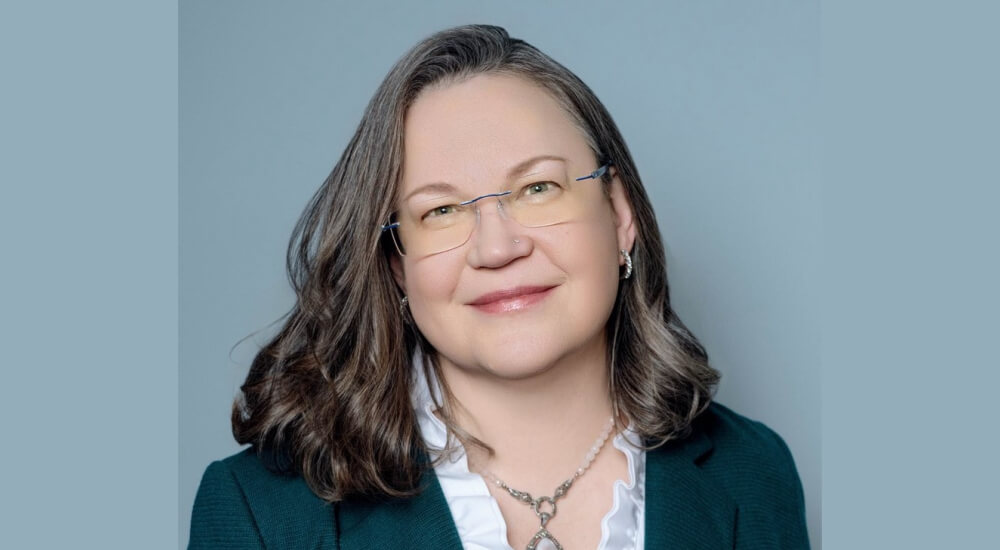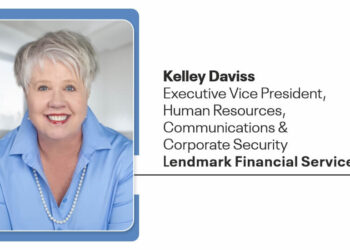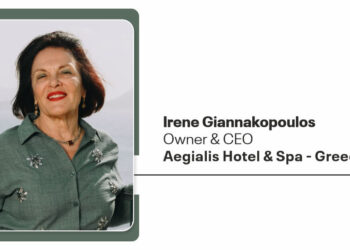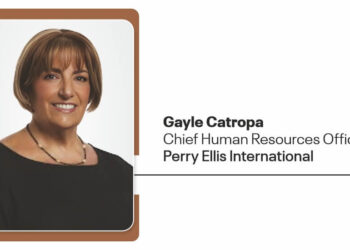Amy Lichonczak is more than a leader in quality management—she is a force for excellence and positive change. As the Director of Quality Management at eSimplicity, she brings a sharp analytical mind and a results-driven approach to project management, risk assessment, and process optimization. Her expertise spans the design and certification of business systems to ISO 9001, ISO 27001, and CMMI for both Development and Services, ensuring organizations meet the highest standards of efficiency and compliance.
Beyond her professional achievements, Amy’s commitment to making a difference extends to her role as volunteer group co-Lead for Sew Much Kindness with the Quilts of Valor Foundation. Through this initiative, she helps provide handcrafted quilts to service members and veterans, blending her passion for precision with a deep sense of purpose.
With a track record of success in quality management, change management, measurement analysis, audits, and appraisals, Amy continues to push the boundaries of what’s possible—driving both business excellence and meaningful community impact.
An Unexpected Path to Quality Management
During her undergraduate studies, Amy initially considered a major in Marketing with a focus on industrial advertising. However, a temporary role unexpectedly evolved into a lifelong career in quality management. One pivotal moment came when she was handed a copy of the newly released QS9000 automotive quality standard and tasked with collaborating with a site product engineer to develop the necessary procedures and documentation for facility-wide implementation. After multiple readings, the standard clicked, marking the beginning of her journey as a quality coordinator at a urethane adhesive manufacturing facility. Notably, her team became one of the first 500 companies to achieve QS9000 certification.
Amy’s early experience in batch process manufacturing within the automotive sector led her to work with suppliers for the “Big Three” automakers. She later joined General Motors as part of a specialized headquarters quality team, overseeing assembly plants across the U.S., Mexico, and Canada in achieving what was then the largest ISO 9001 certification.
As a young professional, the American Society for Quality (ASQ) played a crucial role in her development, equipping her with tools, training, and a network of expert mentors. Now, with nearing three decades of experience, Amy continues to collaborate with those mentors and industry peers, advancing the role of quality management beyond compliance—integrating it into performance, strategy, and innovation.
Her decision to remain in the field stems from a passion for improving performance, relationship-building, and driving organizational excellence. Amy thrives on transforming businesses by turning process weaknesses into sustainable improvements and leveraging quality principles to enhance overall performance. Her extensive experience spans multiple industries, including chemical batch processing, automotive parts manufacturing and assembly, plastic injection molding, government contracting, non-profits, service delivery, and information technology. Additionally, she holds expertise in various industry-specific standards, such as TS 16949, ISO 9001, AS 9100, ISO/IEC 27001, ISO 20000-1, and CMMI Best Practices for Development and Services.
Through her journey, Amy has demonstrated that quality concepts are is more than a standards requirement—it is a strategic driver of innovation and operational excellence across industries.
Excellence in Action
Amy’s leadership principles in quality concepts revolve around a firm commitment to excellence, strategic foresight, mentorship, continuous learning, data-driven decision-making, and efficient communication.
Excellence is at the core of quality principles. Mastering fundamental techniques such as root cause analysis, risk evaluation, and process optimization requires consistent practice. These skills extend beyond the workplace—applying them to everyday tasks like buying a car, relocating for a job, or managing home renovations reinforces their practicality.
Envisioning the future plays a crucial role in long-term decision-making. Amy encourages professionals to define their strengths, challenges, and career aspirations early on. By setting 5-, 10-, and 20-year goals, individuals can align daily decisions with their overarching vision. Much like organizations establish strategic plans, personal career development benefits from deliberate focus and resource allocation.
Leading by example is essential for effective leadership. Managing others takes time, patience, and a willingness to learn from both training and real-life experiences. Trust, communication, and mentorship create an environment where less-experienced professionals can take risks, grow from mistakes, and reach their full potential. Amy emphasizes the importance of providing honest, constructive feedback and modeling professionalism in every interaction.
Strong foundations in knowledge and skills are vital for leadership growth. Whether through professional certifications, training, or mentorship, continuous learning fosters adaptability. Staying updated on evolving quality standards ensures informed decision-making and process improvements, benefiting both individuals and organizations.
Becoming friends with data is a key principle in performance excellence. While data itself is neutral, people’s interpretations are influenced by their backgrounds and perspectives. Simple, clear visual representations—such as bar or pie charts—facilitate productive discussions. Anticipating and addressing questions about data strengthens the decision-making process and helps identify risks, corrective actions, and strategic opportunities.
Finally, speaking up is crucial as a leader. While it is easy to engage in one-on-one discussions, presenting ideas in group settings can be intimidating. Amy stresses the importance of asking open-ended, thought-provoking questions to challenge assumptions and prevent groupthink. Through practice, auditing and inquiry become natural conversational tools, fostering deeper understanding of processes, roles, and organizational dynamics.
By integrating these principles, Amy not only enhances quality aspects but also empowers individuals and organizations to drive meaningful, lasting improvements.
Navigating the Complexities of Evolving Industry Certifications
Amy identifies several major challenges in quality management today, particularly the evolving landscape of organizational certifications. Industries such as government contracting require companies to maintain multiple certifications, including ISO 9001, ISO 27001, CMMI, and the newly emerging CMMC. These shifting standards place significant demands on resources, particularly for smaller organizations that must integrate and manage various compliance requirements.
As industry standards continue to evolve, organizations must adopt proactive strategies for certification management. Successfully integrating multiple certifications requires a structured approach, including thorough risk evaluation and long-term planning. Staying current with training and industry developments is essential, as new standards are likely to emerge every few years, impacting business operations on a broad scale.
Another ongoing challenge is managing the documentation required to support quality and business processes. Maintaining up-to-date, useful documentation requires a hands-on approach, ensuring that content remains relevant and accessible. While future technological advancements will likely modernize how organizations communicate and utilize process information, the tools available today still require significant manual effort. As the field of quality management progresses, businesses must remain agile, leveraging foundational quality principles to adapt to these changes efficiently.
Aligning Quality with Organizational Culture for Long-Term Success
Amy believes that emerging trends in quality management will continue to reshape the industry, emphasizing the integration of quality, innovation, and strategy within an organization’s culture. Over the past century, the definition of quality has evolved significantly since the introduction of the Plan-Do-Check-Act cycle by Shewhart and Deming in 1924. Amy’s modernized perspective reflects this shift:
“Quality, innovation, and strategy should be synonymous in the context of an organization’s culture. Building excellence requires purposeful strategy, methodical planning, and innovative processes resulting from careful listening to the voices of internal and external interested parties.” – Amy Lichonczak
She emphasizes that change is inevitable and unavoidable. Organizations that proactively develop solid strategies and detailed plans can better navigate roadblocks, confusion, and internal resistance. Effective communication and awareness throughout the organization are crucial to ensuring alignment. Amy highlights the importance of answering the question, “Why do I care?”—when employees understand how quality initiatives impact their specific roles, they are more likely to engage and contribute to a culture of continuous improvement. By fostering a strategic and innovative mindset, organizations can not only adapt to change but also drive excellence in performance and long-term success.
Building a Strong Foundation
Amy advises aspiring professionals in quality and project management to develop a strong foundation by focusing on key skills and experiences that will support their long-term growth.
Choose the Right Certification
- Start with a certification that is relevant to your current role. This will help you master fundamental concepts and apply them effectively in your work.
- As you gain experience, pursue certifications that align with your future career aspirations. Select ones that push you outside your comfort zone and challenge you to grow.
Seek Mentorship & Ask Questions
- Take advantage of mentorship opportunities to learn from experienced professionals.
- Be proactive in researching industry best practices and taking detailed notes to retain insights.
Learn from Excellence Models
- Explore bodies of knowledge like the Baldrige Excellence Framework and study past winners to understand how organizations achieve excellence.
- Analyzing successful case studies can provide valuable strategies and benchmarks for improvement.
Prioritize Collaboration & Communication
- Build strong professional relationships where brainstorming, problem-solving, and open discussions are encouraged.
- Foster an environment where all perspectives are valued, as diverse viewpoints drive innovation and progress.
Amy encapsulates this philosophy with her insight: “The ‘i’ in quality represents the independent and unbiased view that informs leadership of the transformational progress.” – Amy Lichonczak
By cultivating technical expertise, seeking mentorship, embracing strategic thinking, and fostering collaboration, professionals can position themselves as influential leaders in quality and project management.
Giving Back with Purpose
Charitable work is deeply important to Amy, providing a meaningful way to stay engaged with different industries, communities, and professionals while continuing to learn and grow. Volunteering allows her to develop new skills, collaborate with individuals from diverse backgrounds, and apply her expertise in unexpected ways. By working with organizations that might not typically have exposure to her skill set, she sees firsthand how fundamental quality principles remain relevant across various fields. This exchange of knowledge and experiences keeps her motivated to seek new opportunities to give back and inspire others.
One of the most rewarding aspects of her volunteer work is her role as a group leader for Quilts of Valor Foundation, an organization dedicated to creating handmade quilts for veterans and active service members. Through this initiative, Amy combines her passion for quality with craftsmanship, recognizing that well-made quilts, like well-structured processes, can stand the test of time. She has found that some of the most resourceful problem solvers and creative minds exist within the quilting and sewing community. Their ability to transform simple materials into something meaningful and enduring is a testament to the power of precision, innovation, and dedication—principles that also define excellence in business and leadership.
Beyond the technical skills, volunteering brings Amy immense joy through the camaraderie and shared purpose it fosters. Working alongside others toward a common goal reinforces the value of collaboration, trust, and continuous improvement—values she applies in both her professional and personal life. She embraces the philosophy of Dr. W. Edwards Deming: “We are here to learn, to make a difference, and to have fun.” For Amy, giving back isn’t just about service; it’s about growth, connection, and ensuring that every effort, whether in business or charity, leaves a lasting impact.
Embracing Change
Amy admits that she still doesn’t know exactly what she wants to be when she “grows up.” Sometimes, she finds it easier to explain how atoms function than to define an invisible yet tangible quality-based business system. In an ever-changing ecosystem where industry standards continuously evolve, no two days are alike, and no two companies approach quality management the same way. This constant change keeps her engaged, learning, and adapting, reinforcing the idea that flexibility and continuous improvement are essential in any career.
For Amy, people are a company’s greatest resource, and ensuring they have the best tools to perform at an optimal level will always be a priority—regardless of her title. Her approach to leadership is rooted in providing clear, data-driven guidance and direction, ensuring that decisions are informed, strategic, and effective. She believes that leadership isn’t about holding a specific title but about having the vision to see the next right step and helping others navigate toward it. Strong relationships, trust, and mutual respect are the foundation of meaningful change, allowing leaders to challenge norms and drive progress with confidence.
The Future of Quality Management
Over the next five to ten years, Amy expects the field of quality management to continue evolving, with a stronger emphasis on metrics, measurable outcomes, and performance-based results. The focus will shift from merely tracking numerous data points to prioritizing the value and impact that these measurements provide. Organizations will need to refine their approach to quality by ensuring that their monitoring efforts drive meaningful improvements rather than just fulfilling compliance requirements.
Additionally, Amy anticipates a growing demand for enhanced cybersecurity and information security measures across all industries. As data protection becomes increasingly critical, new regulations and standards will emerge, requiring professionals to stay informed and adaptable. She encourages those in the field to be proactive in obtaining new certifications and credentials that align with long-term career goals. These certifications will not only strengthen expertise but also serve as long-term commitments to personal and professional excellence in a rapidly changing industry.






